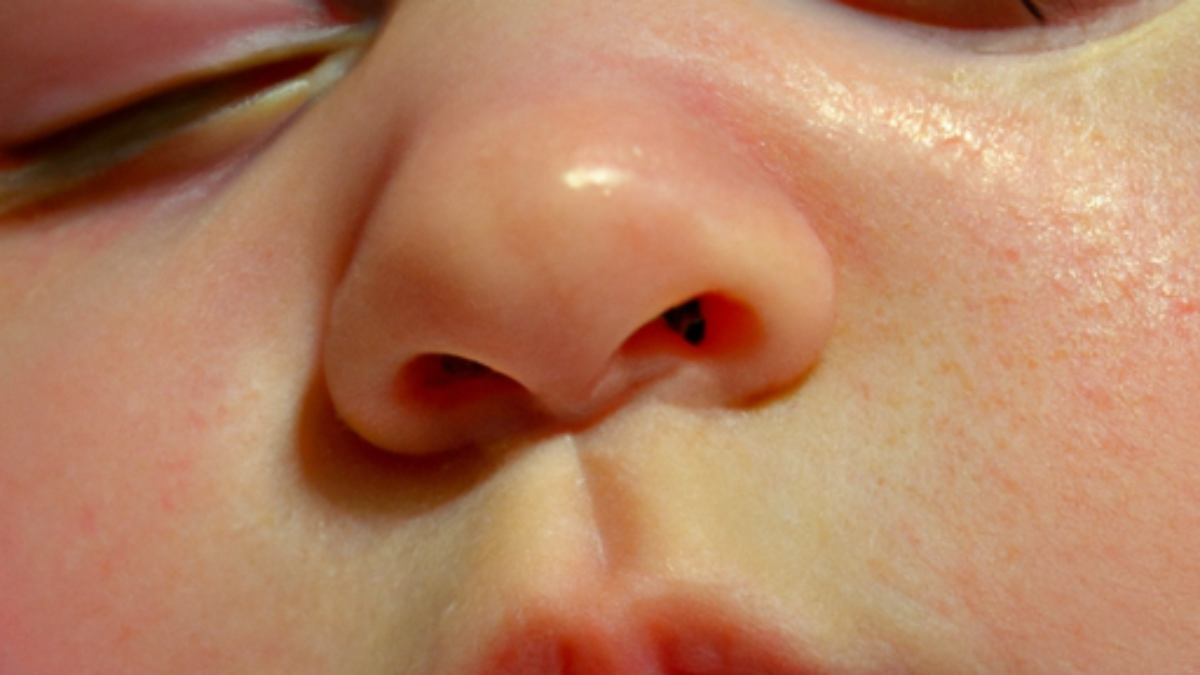In this article, we will explore the common symptoms of Respiratory Syncytial Virus (RSV) in infants. RSV is a respiratory infection that primarily affects young children and can lead to severe complications if left untreated. By understanding the signs and symptoms of RSV, parents and caregivers can recognize the early warning signs and seek prompt medical attention for their little ones. From coughing and wheezing to nasal congestion and fever, we will discuss the key indicators of RSV and the importance of early intervention in managing this viral infection.
Understanding RSV in Infants
Respiratory Syncytial Virus (RSV) is a common viral infection that primarily affects infants and young children. It is a highly contagious respiratory illness that can lead to severe complications if not properly managed. Understanding RSV is crucial for parents and caregivers to recognize the symptoms, seek appropriate medical attention, and implement preventive measures.
Definition of RSV
RSV, short for Respiratory Syncytial Virus, is a viral infection that primarily affects the respiratory system, particularly the lungs. It is a leading cause of respiratory illnesses in infants and young children worldwide. RSV can cause mild to severe respiratory symptoms, and in severe cases, it may lead to life-threatening complications such as pneumonia or respiratory failure.
How RSV is Spread
RSV is primarily spread through close contact with infected respiratory secretions. This can occur when an infected individual coughs, sneezes, or touches surfaces with contaminated hands. The virus can survive on surfaces for several hours, making it easy for infants to come into contact with the virus. Crowded places, such as daycare centers or schools, increase the likelihood of transmission.
Why Infants are Vulnerable
Infants are particularly vulnerable to RSV due to their underdeveloped immune systems. The immune system of a newborn baby has not yet fully matured, making it less capable of fighting off infections compared to older children or adults. Additionally, infants have smaller airways, making them more prone to airway obstruction caused by the swelling and inflammation caused by RSV.
Respiratory Symptoms of RSV in Infants
Recognizing the respiratory symptoms of RSV in infants is crucial for early detection and treatment. Prompt medical attention can help prevent complications and ensure the well-being of the infant.
Difficulty Breathing
One of the most common respiratory symptoms of RSV in infants is difficulty breathing. Infants may exhibit rapid, shallow breaths or struggle to catch their breath. This can be accompanied by flaring nostrils and the use of accessory muscles to breathe.
Wheezing
Wheezing, a high-pitched whistling sound during breathing, is another common symptom of RSV in infants. It occurs due to the narrowing of the airways caused by inflammation and mucus production.
Coughing
Persistent coughing is often present in infants with RSV. The cough may be dry and hacking initially but can progress to produce thick, yellow or green mucus as the infection progresses.
Rapid Breathing Pattern
RSV can cause infants to breathe at a faster rate than usual. This may be accompanied by increased heart rate and a general sense of respiratory distress.
Non-Respiratory Symptoms of RSV in Infants
While RSV primarily affects the respiratory system, it can also cause non-respiratory symptoms in infants. Being aware of these symptoms is important for a comprehensive understanding of the illness.
High Fever
Infants with RSV may experience a high fever, often above 100.4°F (38°C). The fever may be accompanied by other symptoms such as irritability and general discomfort.
Irritability and Restlessness
RSV can make infants irritable and restless. They may appear more fussy and have difficulty sleeping, which can be attributed to the discomfort caused by the infection.
Decreased Appetite
Infants with RSV may show a decreased appetite. They may refuse to feed or have difficulty swallowing due to congestion and a sore throat.
Lethargy
RSV can cause general lethargy in infants, making them appear weak and unresponsive. This can be a sign of severe infection and should be taken seriously.
Severe RSV Symptoms in Infants
In some cases, RSV can cause severe symptoms that warrant immediate medical attention. These symptoms can indicate a more serious infection or the onset of complications.
Blue Lips, Skin or Nails
One of the most concerning symptoms of severe RSV in infants is the development of a bluish tint to the lips, skin, or nails. It indicates poor oxygenation and requires emergency medical attention.
Brief Pauses in Breathing
In severe cases of RSV, infants may experience brief pauses in their breathing, known as apnea. These pauses can be brief, lasting for a few seconds, or more prolonged, and should be evaluated by a healthcare professional.
Refusal to Feed or Dehydration
Severe RSV can cause infants to refuse feeds, leading to dehydration. It is essential to monitor their fluid intake carefully and seek medical attention if they are not adequately feeding or showing signs of dehydration, such as decreased urine output.
Diagnosis of RSV in Infants
Diagnosing RSV in infants involves a combination of a physical assessment, evaluation of medical history, and specific testing methods.
Physical Assessment
A healthcare provider will perform a physical examination on the infant to assess their respiratory status. They will listen for abnormal lung sounds, check for signs of respiratory distress, and evaluate any additional symptoms.
Medical History
The medical history of the infant will be discussed to determine any underlying health conditions or risk factors that may increase the severity of RSV. This can include factors such as prematurity, a weakened immune system, or exposure to individuals with RSV.
RSV Testing Methods
To confirm a diagnosis of RSV, healthcare providers may conduct various tests. The most common method is a rapid antigen test, which involves taking a sample of nasal secretions and testing it for the presence of RSV antigens. In some cases, a more sensitive test, such as a polymerase chain reaction (PCR) test, may be performed.
Complications from RSV in Infants
RSV can lead to several complications in infants, especially if the infection is severe or not appropriately managed. Understanding these complications is crucial for parents and caregivers to be aware of potential risks.
Bronchiolitis
Bronchiolitis, characterized by inflammation of the small airways in the lungs, is a common complication of RSV in infants. It can cause further respiratory distress and requires careful monitoring and treatment.
Pneumonia
RSV infection can lead to secondary bacterial pneumonia in infants. This is a serious complication that requires immediate medical attention to prevent further respiratory compromise and systemic infection.
Respiratory Failure
In severe cases of RSV, infants may experience respiratory failure, where their lungs are unable to provide sufficient oxygen to the body. This is a life-threatening condition that requires intensive medical interventions, such as mechanical ventilation.
Long-term Respiratory Problems
Infants who have had severe RSV may be at a higher risk of developing long-term respiratory problems, such as asthma or recurrent wheezing. Proper management and follow-up care are essential to minimize the impact of RSV on future respiratory health.
Treatment Options for RSV in Infants
The treatment of RSV in infants focuses on relieving symptoms, preventing complications, and providing supportive care.
Medication
While there is no specific medication to cure RSV, healthcare providers may prescribe certain medications to manage symptoms and prevent complications. These may include bronchodilators to open up the airways, antiviral medications in certain cases, or medications to reduce fever and pain.
Hospital Care
Severe cases of RSV may require hospitalization for close monitoring and supportive care. Hospital care can include administration of oxygen, intravenous fluids for hydration, and respiratory support if needed.
At-home Care and Remedies
Mild cases of RSV can often be managed at home with the guidance of a healthcare provider. Parents and caregivers should ensure that the infant gets plenty of rest, is adequately hydrated, and receives appropriate over-the-counter medications as prescribed by a healthcare professional.
Preventing RSV in Infants
Taking preventive measures to reduce the risk of RSV infection is crucial, especially for infants who are more vulnerable to severe illness. Here are some strategies to consider:
Preventive Vaccine
Currently, there is no specific vaccine available to prevent RSV in infants. However, there is an FDA-approved medication called Palivizumab that can be administered to high-risk infants to reduce the severity of RSV infection.
Healthy Habits and Hygiene
Practicing good hygiene can significantly reduce the risk of RSV transmission. This includes frequent handwashing, avoiding close contact with sick individuals, and ensuring respiratory etiquette (covering the mouth and nose when coughing or sneezing).
Limit Exposure to RSV Risk Factors
Reducing exposure to known risk factors, such as crowded places or individuals with respiratory symptoms, can help minimize the chances of RSV infection. It is important to educate family members, caregivers, and visitors about the importance of not exposing the infant to potential sources of RSV.
When to Seek Medical Attention for Infant RSV
Recognizing when to seek medical attention for infant RSV is crucial for timely intervention and optimal outcomes.
Recognizing Severe Symptoms
If an infant exhibits severe symptoms such as blue lips or skin, persistent breathing difficulties, or pauses in breathing, immediate medical attention is necessary.
If Symptoms Persist or Worsen
If the infant’s symptoms do not improve or worsen over time, it is important to consult a healthcare provider for further evaluation and management.
If Infant is Premature or has a Health Condition
Premature infants and those with underlying health conditions are at higher risk of severe RSV infection. If these infants show any symptoms or there is potential exposure to RSV, it is essential to seek medical attention promptly.
The Impact of RSV on Child Development
RSV infection in infancy can have long-term effects on child development, particularly in relation to respiratory health and overall well-being.
Impact on Childhood Asthma
Infants who have had RSV are at an increased risk of developing childhood asthma. Monitoring their respiratory health closely and implementing appropriate preventive measures can help manage this risk.
Impact on Learning and Development
Severe cases of RSV that require hospitalization or lead to complications can have an impact on a child’s learning and development. It is important to provide appropriate support and interventions to address any potential developmental delays.
Future Health Risks
Research suggests that RSV infection in infancy may increase the risk of later health problems, such as recurrent wheezing and respiratory infections. Long-term follow-up care and regular monitoring are crucial to minimize the impact of RSV on future health.
In conclusion, RSV is a common respiratory infection that primarily affects infants and young children. Recognizing the respiratory and non-respiratory symptoms of RSV, seeking appropriate medical attention, and implementing preventive measures are essential for the well-being and long-term health of infants. By understanding RSV and its potential complications, parents and caregivers can ensure timely intervention and support for their little ones.

